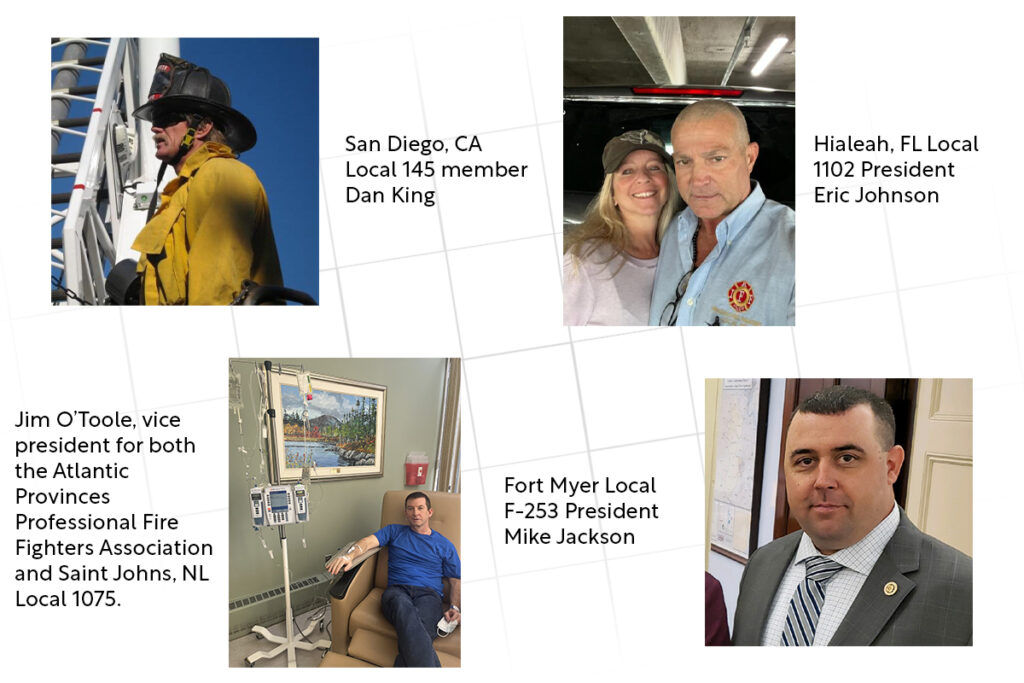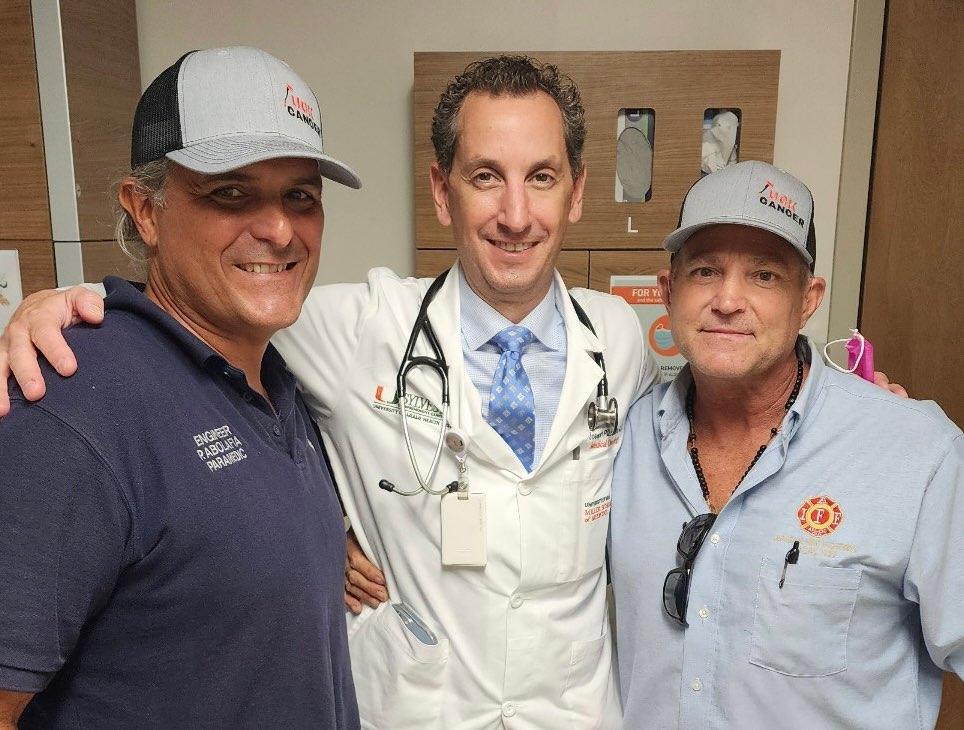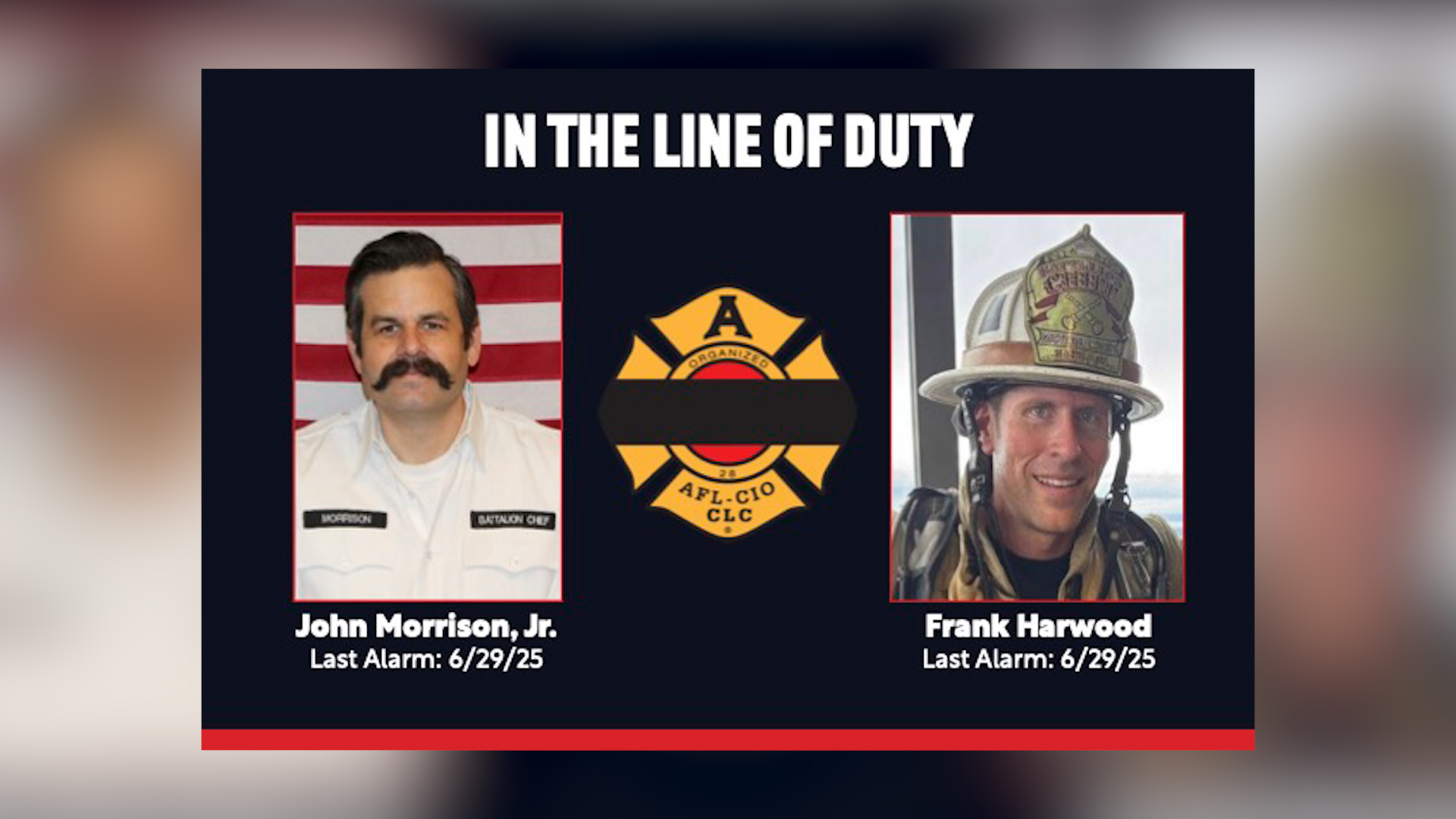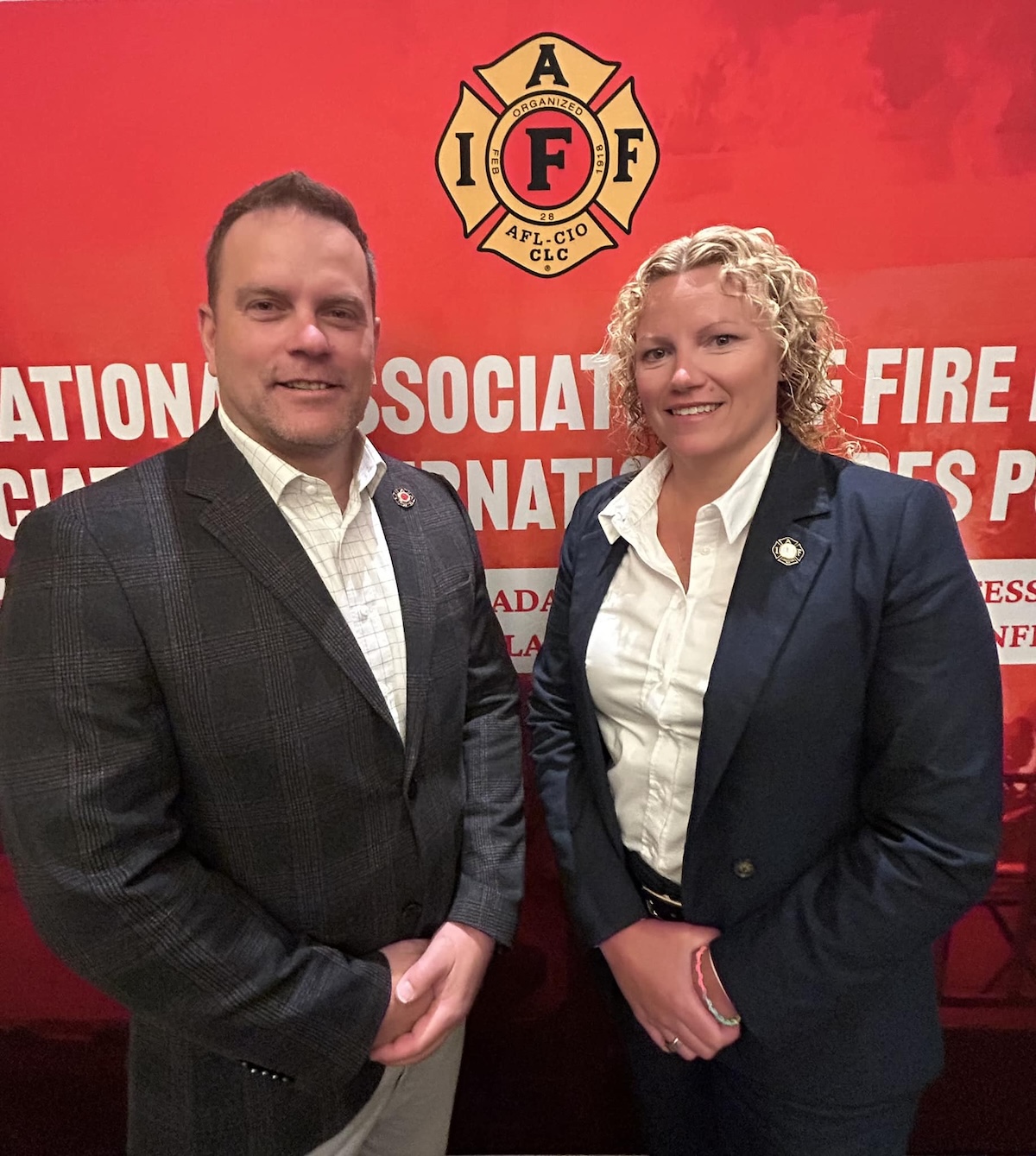From the initial shock of diagnosis to treatment and recovery, cancer doesn’t just impact the diagnosed fire fighter. Its repercussions extend to family and friends.
Hialeah, FL Local 1102 President Eric Johnson asked the University of Miami’s Cancer Prevention and Wellness Clinic to conduct cancer screenings for his membership. When clinicians examined Johnson, they ordered a colonoscopy and more tests.
“Looking at the results, there was no room for doubt. I had had colorectal cancer for as many as five years without experiencing any symptoms,” he said. “When the testing found it, the cancer was at stage three, and I needed treatment right away.”
“Even though you’ve always known it’s possible, it doesn’t feel real,” said Darlene Johnson, Eric’s wife. “You go from shock to worrying that he’s going to die.”
 Patty Jackson knows that feeling.
Patty Jackson knows that feeling.
Jackson serves as a dispatcher at Fort Myer in Arlington County, Virginia, where her husband, Fort Myer Local F-253 President Mike Jackson, is a fire fighter. “I had a friend at work who was going through colon cancer and was not doing so well. So, when we got the news about Mike’s testicular cancer, it hit me like a ton of bricks.”
When Jackson, a 29-year fire fighter, suspected something was wrong, he went to his doctor to get checked. The doctor confirmed he had a mass and recommended surgery to remove it. An aggressive round of chemo followed.
Family and Friends Become Caregivers
Spouses are most often the ones who take on the most responsibility. They transport the cancer patients to appointments, attend appointments, provide emotional support, take on the role of home nurse, and keep family/home life operational.
“It’s your turn to be the rock, and it can be a lot,” said Patty Jackson. “Sometimes you just have to go outside and take a deep breath. Then, go back inside and just keep going.”
Jim O’Toole, vice president for both the Atlantic Provinces Professional Fire Fighters Association and Saint Johns, NL Local 1075, was first diagnosed with kidney cancer and, later, some recurrences of melanoma (skin cancer).
“The kidney cancer was the easiest as treatment only required surgery. I thought the melanoma would be simple too because it appeared to be just superficial, but I guessed wrong,” said Crystal Dominix, O’Toole’s wife.
 She continued, “The treatment caused fever, joint pain, and some other side effects. I learned to stay mission-focused and accept that not every day is going to be the best.”
She continued, “The treatment caused fever, joint pain, and some other side effects. I learned to stay mission-focused and accept that not every day is going to be the best.”
In addition to being a home nurse, spouses or designated family members often need to help keep track of everything related to treatment and recovery.
When San Diego, CA Local 145 member Dan King was diagnosed with throat cancer, his treatment plan included a high volume of doctors’ appointments. His wife, Theresa, was with him at these appointments for moral support and to be a second set of ears to hear care instructions.
“Waiting for answers and watching the effect cancer had on him was very stressful, but organizing helps me cope. I put the doctors’ appointments, treatments, and medications into spreadsheets,” said Theresa King. King’s husband, Dan, is a San Diego Local 145 member and was diagnosed with throat cancer.
“Because it was throat cancer, I had to be on radiation and use a feeding tube. I couldn’t drive or anything,” said Dan.
Ask for Help
The treatment plan and home care will become all-consuming. The families of cancer patients may find that they need help with yard work, walking the dog, or childcare.

I would come home from an appointment, and they would be there cutting the grass or completing another household chore. We never had to ask; they just did it.”
IAFF members were also ready to step in and assist the Jackson family. “We didn’t want to ask for help because we thought it might get worse and then we would really need people to step in,” said Patty Jackson. “But Local F-253 members never failed to stop by the dispatch center every day I was on duty to see if Mike needed anything.”
The Jacksons did accept help from nearby family members to help with the kids.
What About the Children?
“Seeing my dad when he wasn’t feeling well was hard,” said Rylee Jackson, 16. “I just wanted to make things easier for him and my mom. So, my sister, Kenzie [age 7], and I started doing extra things around the house. I even cooked a few times, which went better than I thought it would.”
The family tried to keep the lines of communication as open as possible and answer any questions the kids had. But deciding how much to involve the kids is personal for each family.
“Our kids are in high school, so the big question they had was whether or not I was going to die,” said Dan King. “We just answered their questions to the best of our ability.”
“We really appreciated it when they did extra things around the house. But it was also important to us that this situation not disrupt their lives too much,” said Theresa King.
The O’Toole/Dominix family took a similar approach, but it wasn’t always easy. “Both of our boys are involved in hockey, and we wanted to make sure they could participate as usual,” Crystal said. “But, at some point, you realize you can’t do it all. We were fortunate to have very good friends who could help us, especially when Jim was in the hospital.”
Treatment left Local 1102 President Johnson feeling nauseous. As a result, he lost a lot of weight in a short amount of time. Johnson’s son, Jaedon, a Monroe County, FL Local 390 member, could see his dad was not doing well.
“One day, Jaedon said to me, ‘I feel like I’m watching you die right in front of me,’” recalled Johnson. “It was right then that I decided I didn’t care if I got sick when I ate or how bad I felt trying to stay active. I was going to put my weight back on. I was going to start moving more. I was going to recover.”
Johnson and other fire fighters interviewed for this story are all cancer free, though they continue to be monitored by their doctors in case of recurrence.
[vc_separator color=”custom” accent_color=”#dd3333″]
Resources
Cancer’s impact is overwhelming, and it can be hard to know what to do first and where to go next.
Hotline.
Through the IAFF’s partnership with the American Cancer Society, IAFF member families can call a 24/7 hotline specifically set up for them (877) 901-7848.
Online Community.
Fire fighter families can also go to the Cancer Survivors Network at csn.cancer.org to join an online community to find support and ask questions.
Mentors, etc.
The Firefighter Cancer Support Network (FCSN) serves as a resource to fire fighter families in the United States and Canada currently battling cancer. The FCSN offers mentors and help finding resources to battle cancer. Learn more or ask for help by visiting the FCSN at firefightercancersupport.org.



